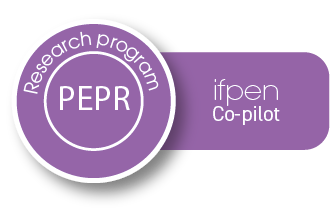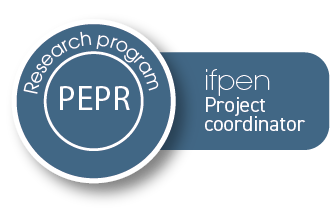IFPEN and the B-BEST PEPR – A research program dedicated to biomass, biotechnologies and technologies for green chemistry and sustainable fuels
|
|
The B-BEST research program at a glance
Currently involving 21 partners (Universities, National Research Bodies and Grandes Ecoles) alongside IFPEN and INRAE, the B-BEST (Biomass, biotech and technologies for green chemistry and renewable energies) program, operated by the ANR, is structured around five priority areas for which eleven targeted projects, ten calls for projects and four calls for interest have been built. New research projects will be coming on stream and more research teams will be involved with the calls published recently or to be published in 2025.
B-Best has a budget of €70 million over six years (2023-2029) within the framework of the France 2030 national acceleration strategy dedicated to “Bio-based products and industrial biotechnologies - sustainable fuels”. B-BEST is aimed at gathering an interdisciplinary community and addressing the principal challenges associated with the conversion of biomass into bio-based products for a sustainable transition to the bio and circular economy.
IFPEN is also participating in six other PEPRs associated with the French National Acceleration Strategy - “PEPR-SNA” (a total of 26 nationally) and six Exploratory PEPRs (a total of 17 nationally).
|
|
IFPEN leader of priority 3: define and develop new biomass conversion processes
“The specific feature of this priority dedicated to processes is its broad scope. When you retrieve biomass residues from the environment, you have a responsibility to make the best possible use of it and not to lose carbon along the way, to do it sustainably and efficiently. Performance and costs have to be considered. Several disciplines will therefore be working together “, points out Antoine Margeot, Head of the Biotech Department.
The five research priorities of the B-BEST PEPR
Priority 1: Characterize the chemical and physical structure of biomass on the basis of its properties
Priority 2: Understand and control biological systems
Priority 3: Define and develop new biomass conversion processes
Priority 4: Develop cross-cutting methodologies and tools: operational environment and digital tools
Priority 5: Understand the processes involved in the transition to the bioeconomy and their governance
In particular, IFPEN, represented by Antoine Margeot, is responsible for leading priority 3 of the PEPR. Within the framework of priority 3, the following have been set up:
Three targeted projects:
- OptiSfuel, the objective of which is to maximize the carbon yield of biomass by testing new proofs of concept to optimize the production of sustainable fuels;
- FURFUN, which aims to broaden the scopes of use of furanic platform molecules by investigating new functionalization and conversion routes;
- ElectroMIC, aimed at creating a metabolic network from a microbial community using electrochemistry in order to optimize the conversion of organic waste.
Three calls for projects:
- Breakthrough in catalytic conversion processes for biomass and waste conversion;
- Scaling problems for industrial biomass conversion technologies;
- Hybrid catalysis, combining chemical and bio-catalysts in innovative processes, as new avenues for the design of more efficient bio-refineries.
IFPEN’s participation falls within the framework of its scientific approach and its different research problems: "Material and fluid characterization for energy, on various scales" (challenge 1), "Understand, on a molecular or adapted scale, chemical, catalytic or enzyme reaction mechanisms" (challenge 2), and "understand the effect of confining fluids on their dynamics and reactivity in porous media" (challenge 3),
You may also be interested in
IFPEN and the SPLEEN PEPR
IFPEN is co-pilot with the CNRS of PEPR SPLEEN, an upstream research component serving the national acceleration strategy for the decarbonization of Industry.
IFPEN and the SPLEEN PEPR
IFPEN is co-pilot with the CNRS of PEPR SPLEEN, an upstream research component serving the national acceleration strategy for the decarbonization of Industry.






 IFPEN and INRAE are leading the B-BEST PEPR*, the research component supporting the French national acceleration strategy relating to “Bio-based products and industrial biotech - sustainable fuels”
IFPEN and INRAE are leading the B-BEST PEPR*, the research component supporting the French national acceleration strategy relating to “Bio-based products and industrial biotech - sustainable fuels”

